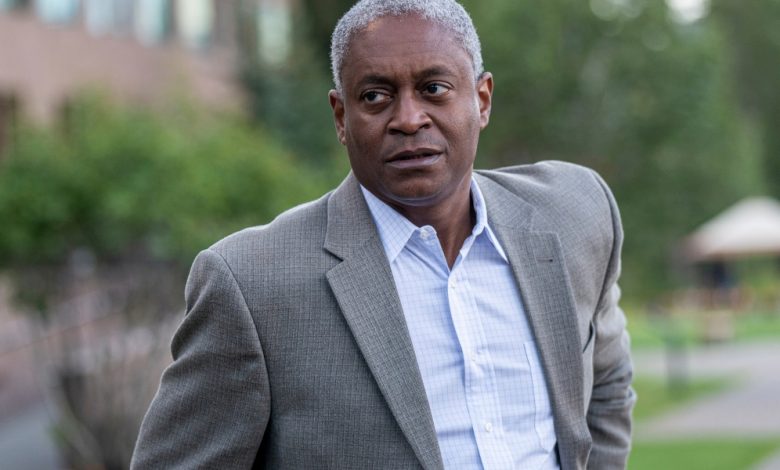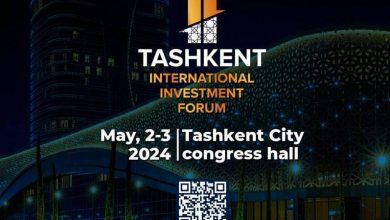Atlanta Fed Chair says strong jobs report could mean bigger rate hikes

Federal Reserve Bank of Atlanta President Raphael Bostic said January’s strong jobs report raises the possibility that the central bank will have to hike interest rates to a higher peak than policymakers had previously anticipated.
If a stronger-than-expected economy continues, “it probably means we have to work a little more,” Bostic told Bloomberg News in a phone interview on Monday. “And I would expect that to result in us raising interest rates more than I’ve now predicted.”
Bostic reiterated that his baseline scenario would continue to yield rates of 5.1%, in line with the median of policymakers’ December forecasts, and stay there through 2024. A higher peak could come from an additional quarter-point hike over the two currently envisaged, he said, without ruling out a half-point hike.
Two-year Treasury yields rose after Bostic’s comments and US stocks fell, but later recovered.
Investors have raised where they see interest rates peaking this year and are now concurring with that forecast after January’s jobs report came in much stronger than expected. Employers added 517,000 jobs last month, while unemployment fell to 3.4%, the lowest since May 1969.
The Federal Open Market Committee raised its policy rate by a quarter of a percentage point last week to a range of 4.5% to 4.75%. The smaller move followed a half point hike in December and four huge 75 basis point hikes before that.
The Atlanta Fed President, who is not voting on policy this year, said officials need to understand if the jobs report is an “anomalous reading,” in which case he “would be inclined to see through this a bit.”
Bostic said the committee could also consider returning to a 50 basis point hike if needed, although that’s not his expectation. He supported interest rate cuts last week.
“It wouldn’t surprise me if this quarter or the next comes out stronger than people are expecting now,” Bostic said, adding he’s focusing on “supply/demand imbalances” as too much demand leads to more could lead to inflation.
“Task one for us must be to bring inflation back under control,” he said. “And I’ll do whatever it takes to make sure we do.”
Bostic said even after a pause in rate hikes, the committee could make further rate hikes if needed.
“I like optionality, so I never want to rule out action, but I think a lot will depend on how the economy performs relative to my expectations,” he said. “We understand what data dependency means and we will try not to commit too much to just one approach.”
Bostic said he expects inflation to be in the “low 3s” this year, still well above the Fed’s 2% target, which requires longer higher interest rates.
“It can take a long time to realize those last few tenths of a point,” he said. “Therefore, I want to make sure we are in the right place before we start easing our policy, because the most important thing at this stage is to get our price stability measure as close to target as possible.”
Chairman Jerome Powell told reporters on Feb. 1 after the Fed’s meeting that policymakers expect to push through “a few” more rate hikes before shelving their aggressive tightening campaign.
He also warned that an easing in an overly tight labor market was needed to cool the ongoing price pressures. The chairman cited a ratio of 1.9 job vacancies for every unemployed person, near an all-time high.
Powell has a chance to reinforce his message after the red-hot job market when he speaks again Tuesday at 12:40 p.m. in Washington.
The Fed has attempted to cut wage growth to a level consistent with its 2% inflation target. The jobs report showed average hourly wages rose 0.3% from December and 4.4% from a year earlier, but the previous month has been revised upwards.
As the jobs numbers show the resilience of the job market, Fed officials have said their aim is to bring US growth below its long-term trend to ensure price pressures are brought back to pre-Covid-19 levels. pandemic existed.
The Atlanta Fed chairman said the strong payroll report had boosted prospects for a soft landing for the US economy.
“I’ve long said that I think there’s a lot of momentum in the economy and there’s a good chance that momentum will be enough to absorb our policy tightening in a way that could help us one to avoid recession. ” he said.
Learn how to navigate and build trust in your organization with The Trust Factor, a weekly newsletter exploring what leaders need to succeed. Login here.



